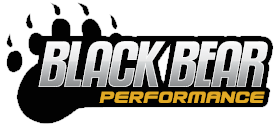Frequently Asked Questions
General Questions
In cases where a Scan Cable tune is ordered, I'm able to further hone the tune in to be as safe as possible while still performing the way that you like it to.
For an inclusive (but not fully-encompassing) list of all vehicles that can run 87 but should not (under any circumstances), see below:
- All LS1, LS2, LS3, L99, LS7, LSA, LS9 equipped vehicles. 91+ octane required.
- 2005+ L33 "B" engine silverado/sierra models. With a higher compression ratio than the standard 5.3L for those years, 89 octane or better is recommended for both fuel efficiency and power output.
- 2007+ 5.3L engines. At 10:1 compression, this engine (all variants) cannot run efficiently on 87 octane. Power output and mileage will be noticably better in 95%+ vehicles simply by switching from 87 to 89 octane. 91+ preferred.
- 2001-2007 LQ9 vehicles (AWD Cadillac Escalade, Silverado SS, Sierra Denali, Vortec Max). Compression ratios (and owners manual) dictate that premium fuel should be used at all times.
- 2007+ 6.2L L92 (and variant) vehicles. All 6.2L truck/SUV engines have a 10.5:1 compression ratio and as a result, require premium. Most of these vehicles will have a note in the owners manual as well as a decal on the gas door stating a recommendation to that effect.
- All 2014+ direct injected vehicles. Compression ratio is simply too high to efficiently burn 87 octane.
Customers that utilize the Scan Cable option will typically be able to perform this procedure on their own. This is a potential savings of up to $100, depending on dealership rates. This does not apply to 98-00 Classic Body style trucks and SUVs.
If you mail in your PCM/ECM, priority will be given to you to ensure that you have as short of a down-time as possible. In most cases, we can have the PCM/ECM tuned and back in the mail within 1-2 business days.
Our preferred method of shipping is USPS Priority Mail which takes 2-3 days.
We've encountered thousands of vehicles that have had mechanical problems that were previously unknown to the customer. In most cases, the problem was minor and well within the computer's ability to adjust, however without correcting those problems, a performance tune may have caused the problem to become more prominent and would leave the customer with a less than optimal vehicle. In many cases, the cause of poor gas mileage can be revealed and corrected. There have even been cases where engine damage would have been possible had these issues not been corrected.
Scan Cable Tune Questions
